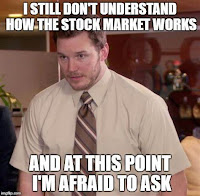Every ounce of my MMO playing body wants to return to the “golden era” (1998 to 2000) where no one was safe, impact was real, and some of the greatest MMO PvP in history took place in Ultima Online. However, my experience with today’s MMO PvP systems tells me there is no going back. The problem with modern MMO PvP isn’t one of design, but one of choice and era.
When Ultima Online launched in 1997, any player looking to play a graphical MMO had very few choices. UO stood alone for the most part until 1999 when Everquest and Asheron’s Call launched. The choice of game ultimately came down to one of two games: Everquest or Ultima Online. Everquest, offering 3D graphics, required specific hardware to run and it was also a very “game” MMO which focused on killing monsters and obtaining better loot. Ultima Online with a 2D isometric view ran on plenty of mid-range PCs of the day and offered a much more robust offering of features: player housing, crafting, and live events to name a few.
The “golden era” player base, as with today’s players, consisted of every Bartle player-type: killer, achiever, explorer, socializer. While every player is not defined by a single category -- primary killers are still achievers and explorers – those primarily inclined towards one type were going to wind up in a one of the two games. This meant that some of each type were going to mix together in their respective games.
Everquest’s design dictated that it attracted achievers and killers. While exploration was possible and there were chat channels, Everquest lacked the keys to providing an environment for great socialization. So, achievers and killers flocked to Everquest and for the most part anyone playing Everquest could be assumed to be primarily an achiever or killer. Yes, there were still socializers (mostly role players), but by far and large Everquest catered to the achiever or killer mindset.
Ultima Online on the other hand catered almost perfectly to the socializer at the same time offering achievers, killers, and explorers a fulfilling experience. Players in UO were never forced to pick up a weapon and fight. Many UO players made a life for themselves without ever slaying a single beast. I personally know a player that existed within UO without ever once leaving the town of Britain and having almost never picked up a weapon to fight, instead spending his days at the forge talking with players and plying his blacksmithing trade. He was the prime example of how UO allowed primary socializers to exist in an online game. At the time, socializers really had nowhere else to go to find game play that met their needs. UO provided the pen-ultimate socialization experience of it’s day.
Of course, UO also catered to what I like to call the achiever killers: the reds, the player killers, the murderers as some others would have called them. Achiever killers thrive on their destructive ways creating power over their enemies and there is no greater enemy to have than that of a human opponent. Mix this with a tangible feeling of ownership with player housing and eventual player-created cities and the achiever killers found a perfect storm in UO.
Again, players of the golden era had limited choices on what games to play. It is also important to note that these players wanted to play online games. While no one was holding a gun to their head and forcing them to play UO or EQ, there was still a feeling that players were forced to play one of the two most popular MMOs of the time. This lead to player types mixing and competing within game worlds for their own slice of the proverbial pie. Conflict resulted between player types and this was no more evident than what was pre-Trammel UO (aka UO before a safe mirror of the world was created).
The achiever killers in UO loved this. Instead of having to compete against other achiever killers, they could prey on the socializers, explorers, and regular old achievers who inhabited the unforgiving world. Outside of towns, anyone could kill anyone in UO. Upon death, everything the player was carrying at the time could be looted by another player (or sometimes an NPC would swipe an item). UO focused on being a virtual world instead of being a “game that was played online” and there was real risk and reward to the golden era PvP in UO.
While the socializers and non-killer achievers didn’t “love” the fact that they were the sheep that the killer wolf pack fed upon, they couldn’t deny that UO had all the features they wanted. Housing, live events, non-combat oriented game play that meant something to the world; all of these things separated UO from Everquest (and eventually Asheron’s Call). The socializers and achievers of UO were, in a word, stuck like sheep in a field surrounded by wolves. They had to suffer the achiever killers and many left the game because of it.
However, suffer is a bit of a strong word and there were plenty of other factors pushing players away from UO. Also the presence of the “sheep” lead to the rise of what I call the “shepherd”, or better known as the anti-playerkiller (APK). The APKs formed together to defend those that wished to avoid combat and seek justice on those that preyed upon the weak. There wasn’t an ounce of game design or coding put in to make this dynamic system a reality. Players were actually living in a virtual world that featured the full gambit of Bartle player archetypes. Consequence was the true feature of UO and is what made it’s early PvP so unforgettable.
Fast forward to today’s market and I cannot even begin to name all of the AAA titles on the market, let alone all of the underlying B-rate MMOs. However, what I can tell you is that there is a game for every type of player out there. Yet, there is not a single one that recaptures the experience of “golden era” UO.
And therein lays the problem: there is a game for every type of player. No longer are the socializers mixing with the achievers. No longer are the explorers chatting with the killers. The player base is fragmented. It is, so to say, Humpty Dumpty and once it fell down, there was no putting it back together.
Games such as Darkfall and Mortal Online, or server emulation projects such as UO WTF, that promise to bring back that “golden era” are doing nothing more than throwing the achiever killer wolves in a field without any sheep. The wolves turn on each other and quickly realize how boring it gets to fight on equal footing. The dynamic is lost and even the best virtual world fails to bring it back. Before long only the true killers remain and while it certainly can be an enjoyable experience, it is not the magical experience that was to be had in the golden era.
Thus no amount of game design or coding wizardry can bring the magic back. The problem is that the golden era is long gone, yet game developers keep trying to make games that will appeal to every type of player while trying to add a “PvP system” on top of it. This doesn’t work. It can’t work. The market is filled with choice and if a game doesn’t cater directly to the crowd it’s built for, it becomes a generic mess.
I’m still waiting for a true, next generation MMOG to come along; one that focuses on being a virtual world more than just a “game that is played online”. The rest should take care of itself.






